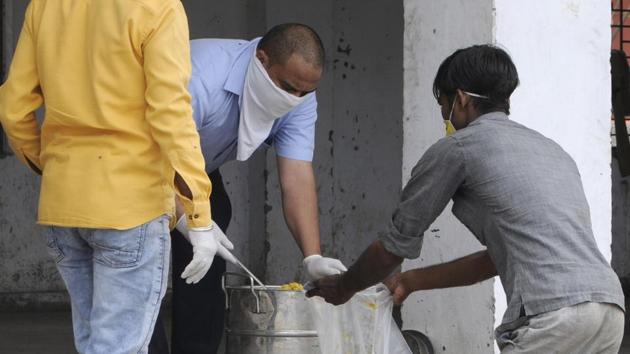The lockdown must not undermine citizen rights | Opinion
More measures are needed to mitigate its effect on the poor. The cure must not become worse than the disease
On the midnight of March 24, the Union government invoked the National Disaster Management Act (NDMA) to impose a nationwide “lockdown” in the struggle against the coronavirus pandemic. The lockdown entailed the closure of establishments (apart from those providing essential supplies) and recommendations on social distancing. At this point, a number of state governments had already invoked the Epidemic Diseases Act, 1897, to impose strict restrictions on the movement of people. A combination of these measures — taken by both the central and the state governments — amounts to what Prime Minister Narendra Modi, in his speech, a “nationwide curfew”, lasting 21 days. The lockdown may get extended.

The imposition of a nationwide curfew raises a set of crucial questions, involving the fundamental rights of the people. The first important point is that although the regulations are neutrally worded — that is, they apply to all individuals, without discrimination — in effect, their impact on the ground is differential. For the section of the population that is willing and able to work from home (WFH), the curfew may not be too disruptive in terms of employment and livelihood. However, a large part of the country is not in a position to work remotely. Indeed, as a recent study showed, the ability to WFH is directly linked to a person’s socio-economic class.
A nationwide curfew, therefore, disproportionately affects the most vulnerable segment of society, witnessed during the exodus of migrants from the cities. According to the equality clauses of the Constitution, placing a disproportionate burden upon one set of people creates a constitutional problem that the State must address. In addition, as the Supreme Court (SC) has noted on multiple occasions, the right to life under the Constitution is not limited to a “bare animal existence”, but also includes the right to a dignified livelihood. There can be little doubt that an imposed curfew adversely affects the livelihoods of vast numbers of people, especially daily-wage workers. Indeed, the distress suffered by this class has already been visible in reports from across the country. Consequently, it is the obligation of the State authorities to mitigate the effects of the lockdown.
As I have argued above, this is not a question of policy, which the State may frame at its discretion, but a question of the enforceable rights of the people, which the State must respect.
What might such measures look like? There have been a number of suggestions, and indeed, measures have been put in place in other countries. For example, in Britain, the government has guaranteed that all employees will be paid 80% of their regular wages for the period that they are off work due to the coronavirus. This is an important start, but it is also crucial to note that this policy has been strongly criticised for leaving out the self-employed, and the precariously positioned workers in the gig economy. The fears of this class of workers are very real: For example, the ban on transport has resulted in Uber suspending its services, putting drivers (many of whom owe regular EMI payments for their vehicles) out of work. What is, therefore, required is a comprehensive relief package that compensates for the loss of livelihood during this time. In the interests of leaving no person behind, it may even be necessary to universalise this — in the form of a universal basic income — that reaches every individual (the cost of which can be recouped through a progressive taxation system). To be sure, India has introduced a set of relief measures, but it will need to do a lot more.
The loss of livelihood and income also directly impacts the ability to pay rent, and to secure accommodation. Consequently, a temporary freeze on evictions and demolitions has been mooted in several countries, and implemented in some. In India, the high courts of Kerala and Allahabad recently passed orders to this effect; these orders were, however, stayed by the SC, on the central government’s assurance that it was working on a comprehensive relief package. When it is ready, it is to be hoped that these issues will be addressed.
There is one, final point to be considered. As many people have noted, a lockdown forces people to remain within their homes. This directly impacts individuals — and, specifically women — who are in abusive relationships, or subject to domestic violence. It has a detrimental impact upon these peoples’ right to physical safety and security; consequently, the State is obligated to put into place immediate institutional mechanisms to respond swiftly and directly to cases of domestic violence. The measures taken by the central and the state governments will, it is hoped, check and contain the spread of the pandemic. In doing so, however, vital fundamental rights should not be sacrificed, and it should not be the case that the cure becomes worse than the disease.



